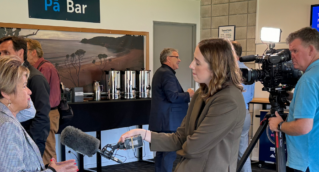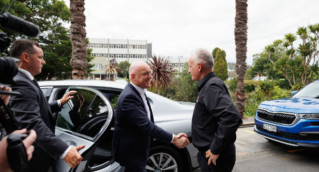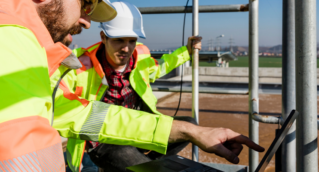1 June 2023
Post Conference Commentary with Lauren Faithfull, Manager Renewables.
Within Aotearoa New Zealand, energy hardship is an insidious issue, and as we head into winter, we know there will be families who cannot heat their homes. The problem is widespread and affects us all in some form, regardless of where we live or what our circumstances are like at any given moment.
When we think about energy hardship, we often think of those who lack access to electricity entirely – those who live off-grid or those who live on-grid but still don’t have reliable access to power. But energy hardship also affects people with steady access to electricity but insufficient electricity supply, as well as those with access to electricity but no means of payment or ability to pay their bills on time.
Despite being so prevalent, improving energy hardship has historically been slow-moving, with Dr Kimberly O’Sullivan, at the recent Reducing Energy Hardship Conference in New Plymouth, pointed out that New Zealand has a long history of cold, damp homes.
In recent years, as a country, we’ve taken steps to improve living conditions for New Zealanders. The Healthy Homes Initiative and Warmer Kiwi Homes program have been instrumental in this effort, as will the introduction of the Government’s Community Renewable Energy Fund.
The latter was warmly welcomed when it was announced in Budget 2023. This fund aims to help improve energy affordability and security for target communities by helping them install renewable energy systems such as solar panels or wind turbines. It builds on the success of the Māori and Public Housing Renewable Energy Fund.
Knowing that our government is taking steps to improve the quality of our homes is great and we support these initiatives and look forward to building our industry’s capability to design, build and operate community energy (particularly solar and wind).
The Reducing Hardship Conference was a great opportunity to catch up with old friends and make new ones, as well as hear from speakers who were passionate about their work. The big players in the New Zealand electricity sector were conspicuous in their absence, but a few social retailers, namely Nau Mai Ra and Toast Energy were in attendance.
It was great to see Northpower and Top energy at the conference as well as other distribution companies around the motu, as they have a part to play in energy affordability and future proofing their infrastructure to be ready for the transition to more distributed generation.
It was particularly interesting to hear that Western Power in Western Australia are installing ‘off-grid’ renewable energy generation at the ‘end-of-line’ locations, rather than continuing to maintain supply lines that only feed a few customers.
Maybe this is something that remote locations around NZ could consider? Though it would require a shift in our mindset about how we distribute electricity.
We need to keep this conversation going to make progress on this issue, with ongoing dialogue between our communities and policy makers.
We can’t expect energy hardship to be eradicated overnight, but we can already see progress being made. The fact that so many people were in that conference room – and doing work in their local communities – shows that we have the power to make a difference faster than our history suggests.



